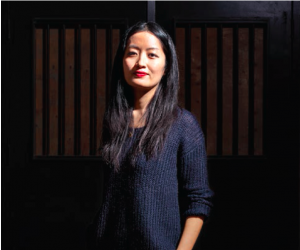 Public safety minister Vic Toews should be very worried. Last September, Toews (along with Attorney General Rob Nicholson and Corrections Canada chief Don Head) was served with a lawsuit claiming the federal government is stomping on the Charter rights of prison inmates by denying them access to clean needles. The lead advocate for the plaintiffs is Sandra Ka Hon Chu, a policy analyst at the Canadian HIV/AIDS Legal Network in Toronto. In slim-fitting jeans, a long peach sweater and lipstick to match, Chu doesn’t exactly look fierce.
Public safety minister Vic Toews should be very worried. Last September, Toews (along with Attorney General Rob Nicholson and Corrections Canada chief Don Head) was served with a lawsuit claiming the federal government is stomping on the Charter rights of prison inmates by denying them access to clean needles. The lead advocate for the plaintiffs is Sandra Ka Hon Chu, a policy analyst at the Canadian HIV/AIDS Legal Network in Toronto. In slim-fitting jeans, a long peach sweater and lipstick to match, Chu doesn’t exactly look fierce.
Don’t be fooled. In her 10 years as a human rights lawyer, Chu has dealt with prosecutors at The Hague, policy makers in Libya, genocide survivors and convicted felons. She’s sharp, diligent and utterly fearless when it comes to facing the very worst of human experience and seeking justice.
“This government doesn’t want to be seen coddling prisoners, even if they are some of the most marginalized people in our society,” says Chu over coffee at a regular haunt down the street from her Yorkville office. She isn’t just spouting rhetoric based on theory. Chu has been fighting on behalf of society’s underdogs and meeting many of them face-to-face since she was a law student at the University of Toronto, where she volunteered at the poverty law clinic.
After articling at Borden Ladner Gervais LLP, she decided the corporate route wasn’t for her; instead, she did her LL.M. in critical feminist theory at Osgoode Hall Law School, then interned with the United Nations in Timor-Leste. A year later, she moved to Libya, promoting institutional accountability and reform. Then Chu went to The Hague to work with an organization pressuring prosecutors at the International Criminal Court to try crimes of sexual violence against women. After her tenure there, she co-authored The Men Who Killed Me, a collection of interviews with 15 people who survived the Rwandan genocide. Her partner, lawyer Samer Muscati, took the photographs.
Then, in 2007, came a posting for a policy job at the Canadian HIV/AIDS Legal Network, which advocates on behalf of people living with HIV and AIDS worldwide. By then, Chu was ready to move back to Canada and the organization seemed like the perfect fit. “One of the things that drew me was working on legislating women’s rights issues in the context of HIV,” she says. Executive director Richard Elliott hired her after a long-distance telephone interview, impressed with her “interest, her commitment and her smarts.”
To prepare for the needle exchange case — in which the Legal Network and four other plaintiffs are seeking a structural injunction, asking the judge to mandate needle exchanges in federal institutions — Chu travelled across Canada to interview nearly 50 current and former prisoners. What she learned during those heartbreaking sessions was, despite a zero-tolerance drug policy, it’s easier to get narcotics inside prison than out, and the rate of HIV infection in federal jail is 10 times higher than in the general population while the rate of hepatitis C is 30 times higher.
Outside of work, Chu occasionally unwinds at home by playing pop tunes on the piano while Muscati (who considers her a musical genius) sings and dances. On weekends, she delves into craft projects. Her latest — yarn-wrapped sticks dangling from a brass tube — now hangs over the piano. Chu finished it in a weekend. Her work offers no such rapid resolutions; the clean-needle case likely won’t go before a judge until next year. “In this field,” says Chu wryly, “you have no gratification that’s quick.”
The Lowdown: Sandra Ka Hon Chu
Year of Call: 2003
Current job: Senior policy analyst at the Canadian HIV/AIDS Legal Network
People I admire most: My grandmothers, because they raised my parents in the face of incredible hardship.
Most treasured possession: My computer. Sadly, I spend more time with it than any other thing or person.
Best career advice: You are not wedded to one job or career for the rest of your life.
Photography by Margaret Mulligan

